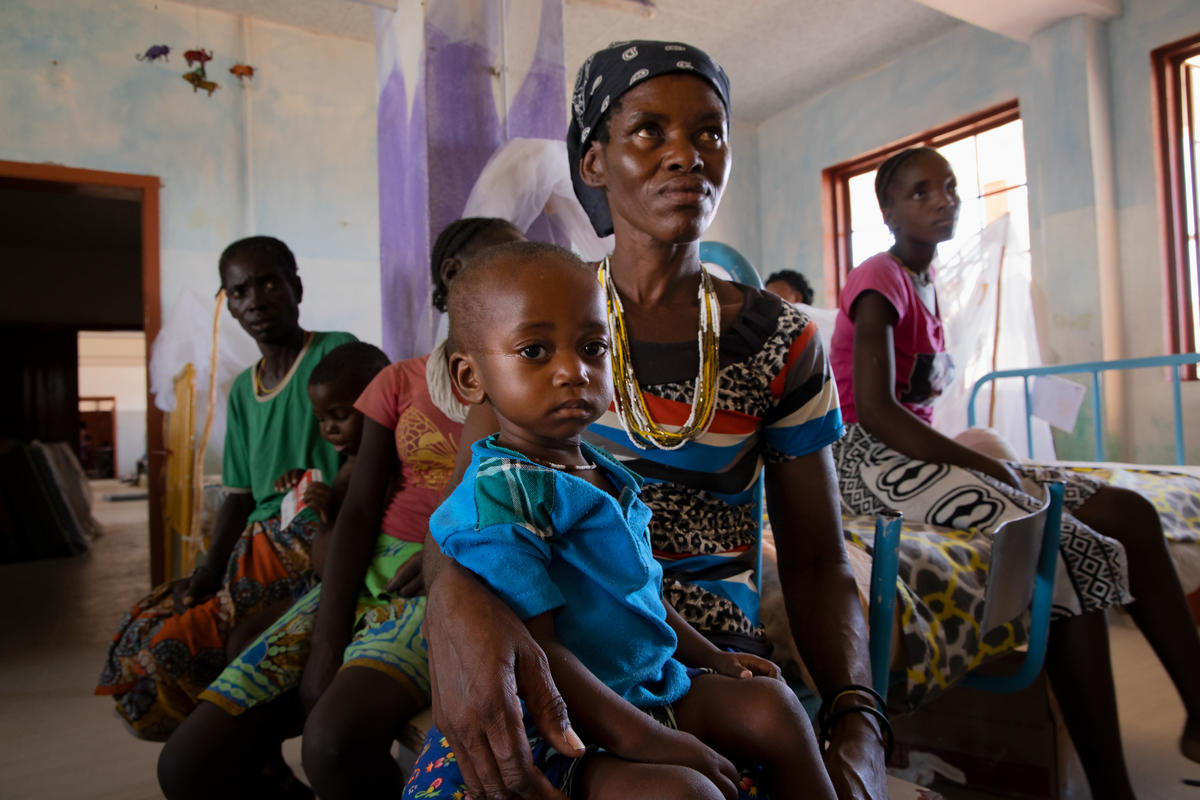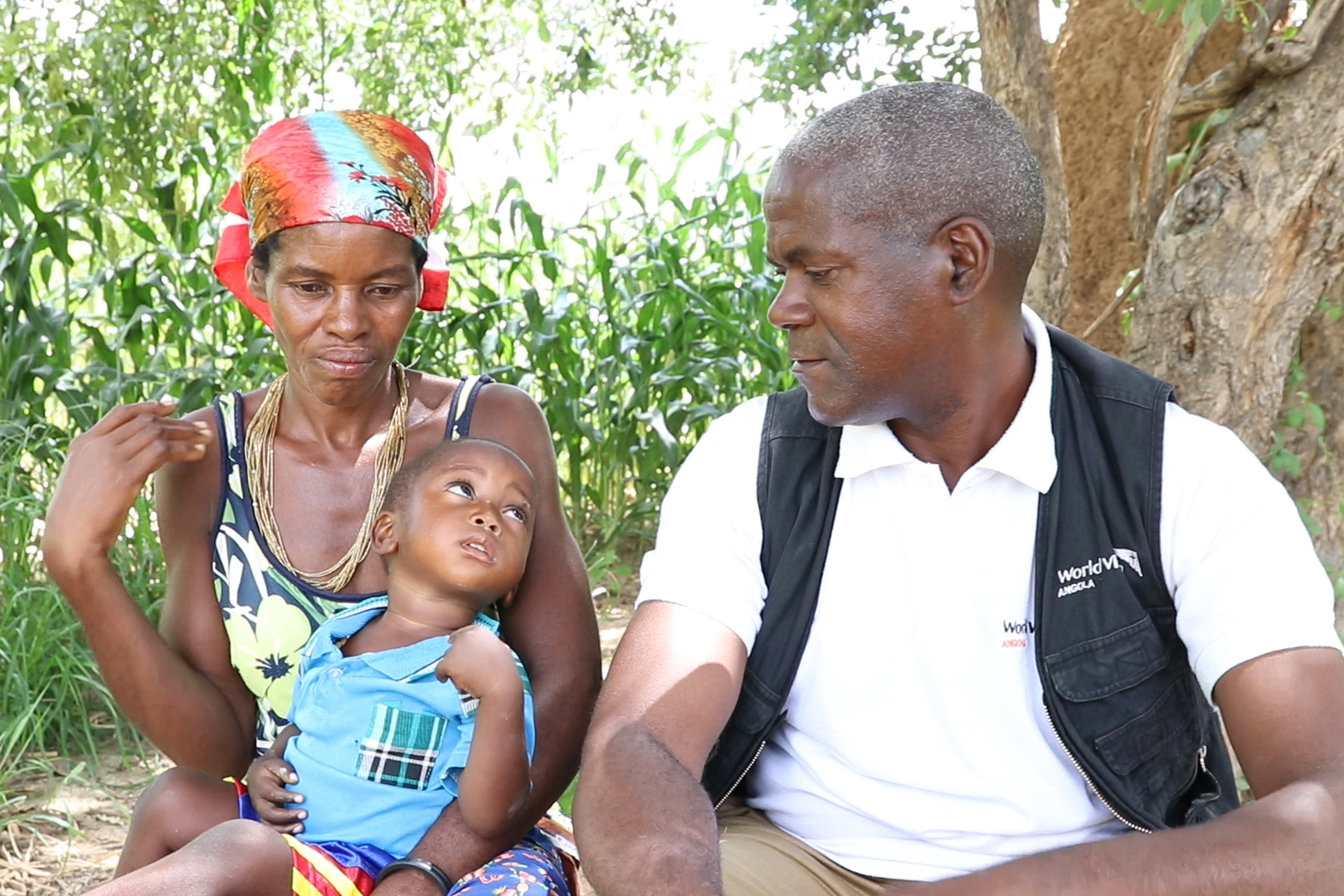Therapeutic food: a lifeline for severely malnourished Paulino
Nineteen-month-old Paulino had not eaten a single thing in three days. All he had was some water.
Paulino’s 49-year-old grandmother, and primary carer, Cordelia, recalled that harrowing time. “Paulino’s body was very thin, he was refusing to eat anything, and he had a fever. When he became ill, it broke my heart.
“I took him to the hospital. They told me he needed to eat more healthy food like eggs, goat meat and milk. But I didn’t have any of those things to give him. Our chickens died during the drought and I sold four goats and a pig to get money to buy some food. We’ve had drought before, but this is the worst I’d seen. Some days we would eat, some days we wouldn’t.”

Prolonged drought in Angola
The prolonged drought in Angola severely hindered Cordelia’s ability to grow food to sustain her family. Paulino usually ate just one meal of plain maize porridge a day until his tiny body rejected food entirely - one of the dangerous signs of complicated severe acute malnutrition.
Paulino weighed just 7.5 kilograms when he was admitted to hospital in October 2019. A child of his age should have weighed at least 8.6 kilograms. He was diagnosed with severe acute malnutrition.
Paulino was administered ready-to-use therapeutic food MANA on his first day in the hospital. MANA is composed of peanut paste, milk, and a special mix of vitamins and minerals to meet a child’s basic nutritional needs. His starved body rejected it to begin with. “Paulino vomited the first time he tried it, but after that he started eating it well,” recalled Cordelia.
Paulino's health starts to improve
Paulino continued to receive three daily doses of MANA for the month he was an inpatient at the hospital and the additional month as an outpatient. During this time, Paulino’s condition gradually improved.
World Vision Angola’s Nutrition Supervisor, Isaias Ricardo, met Paulino shortly after he arrived at the hospital. “The seriousness of Paulino’s condition cannot be underestimated. If he had not begun taking MANA when he did, he may have died,” shared Isais.
Paulino is now a healthy weight
By February 2020, Paulino was a healthy 8.6 kilograms and his mid-upper arm circumference (MUAC) was 13.5 centimetres. A MUAC of above 12.5 centimetres is considered healthy. “I am very grateful that Paulino is healthy now and that he plays. I’m thankful to the people who gave the MANA, but I have nothing to give them,” said Cordelia.
Although Paulino’s health has greatly improved, challenges remain for Cordelia and her family and so many others across southern Angola. Climate change has hit this region hard. The right amount of rain at the right time to grow all-important crops like maize and millet can no longer be relied upon. “The drought affected us badly and is still affecting us. If it rains more, I will harvest ok, but I don’t know if the rain is coming,” shared Cordelia.
Paulino’s mother, Chapukulwa, lives in a different part of Cunene province in Angola but visits him often. “When Paulino was sick, I was worried that he would never recover. I am so happy and relieved he is better,” she said.
World Vision has provided training to 90 health centre staff in Cunene Province on how to identify and treat severe acute malnutrition.
Therapeutic food, MANA, saves lives
World Vision Angola’s Nutrition Supervisor, Isaias Ricardo shared, “I met Paulino when he was severely malnourished. The difference from then to now is incredible. We are so grateful to the organisation Food for Famine who donated the MANA. Your donation has saved a lot of lives of severely malnourished children affected by drought in Angola, including Paulino’s. He is now healthy because of this treatment.”

The Nutrition Systems Strengthening for Effective and Sustainable Care of Children with Severe Acute Malnutrition in Cunene and Huila Provinces project is funded by UNICEF. Ready-to-use therapeutic food MANA, donated by Food for Famine through World Vision Canada, has been used to treat more than 14,000 severely malnourished children. This project was implemented as part of World Vision’s Southern Africa hunger emergency response.